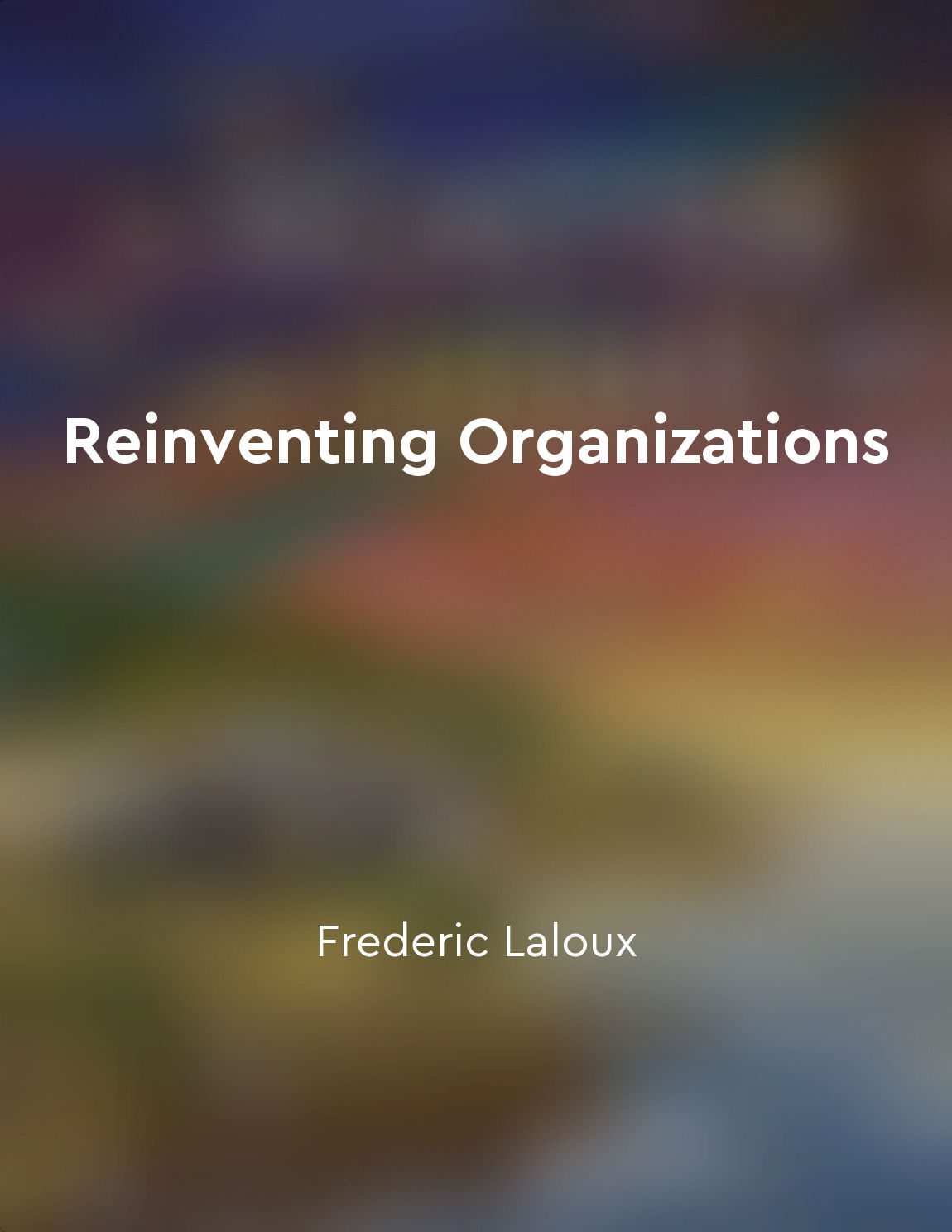Cultivating a culture of trust and openness is crucial from "summary" of Reinventing Organizations by Frederic Laloux
In organizations where a culture of trust and openness thrives, employees feel safe to be themselves, to speak their minds, and to take risks without fear of judgment or reprisal. This environment fosters creativity, innovation, and collaboration, as individuals are free to share ideas, make mistakes, and learn from each other. When people trust their colleagues and leaders, they are more likely to work together towards common goals, rather than competing or withholding information. This sense of unity and common purpose can lead to higher levels of engagement, motivation, and job satisfaction among employees. Trust is the foundation of any healthy relationship, whether personal or professional. In an organization where trust is lacking, employees may become guarded, cynical, and disengaged. Without trust, communication breaks down, conflicts escalate, and decision-making becomes paralyzed. In contrast, when trust is present, communication flows freely, conflicts are resolved constructively, and decisions are made efficiently. Trust enables individuals to be vulnerable, to admit their mistakes, and to ask for help when needed. This vulnerability can lead to deeper connections, increased empathy, and a stronger sense of community within the organization. Openness is the willingness to be transparent, to share information openly, and to invite feedback and input from others. In a culture of openness, leaders are honest and authentic in their communications, employees feel empowered to voice their opinions, and decisions are made collaboratively. When information is shared openly, everyone is on the same page, misunderstandings are minimized, and rumors are dispelled. Openness also encourages learning and growth, as individuals are free to ask questions, challenge assumptions, and explore new possibilities. By promoting a culture of openness, organizations can adapt more quickly to change, respond more effectively to challenges, and stay ahead of the competition. Cultivating a culture of trust and openness requires intention, effort, and commitment from everyone in the organization. Leaders play a crucial role in setting the tone, modeling the behavior, and reinforcing the values of trust and openness. Employees also have a responsibility to practice trust and openness in their interactions with each other. By building relationships based on trust and openness, organizations can create a positive, supportive, and inclusive work environment where everyone can thrive.Similar Posts
Create a clear roadmap for executing your innovative ideas
To bring your innovative ideas to life, you must have a well-defined plan of action in place. This plan should serve as a roadm...
Embracing vulnerability can foster deeper connections
When we allow ourselves to embrace vulnerability, we open the door to deeper connections with those around us. Vulnerability is...

Foster a climate of continuous learning
To go from good to great, a company must cultivate an environment where learning is not just encouraged, but ingrained in the v...
Trust is an essential element in creating a positive work culture
Trust is the foundational principle that underpins relationships and drives organizational success. Without trust, individuals ...
Empathy is a powerful tool in understanding and connecting with others
Empathy, the ability to understand and share the feelings of another, is a vital skill in building connections with those aroun...

Encourage a growth mindset
Encouraging a growth mindset is essential in a fast-paced and ever-changing work environment. It involves fostering a belief th...
Mindfulness practices can improve focus and wellbeing
Mindfulness practices involve intentionally focusing on the present moment without judgment. By cultivating this awareness, ind...
Challenge traditional hierarchies and power structures
In the contemporary workplace, it is essential for individuals to challenge traditional hierarchies and power structures. This ...
Communication should be tailored to different audiences
When we communicate with others, it is essential to remember that not all audiences are the same. Each individual or group we e...

Leading by example and staying true to your values
Leading by example and staying true to your values are essential when it comes to being a successful leader. It's not enough to...

